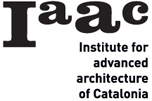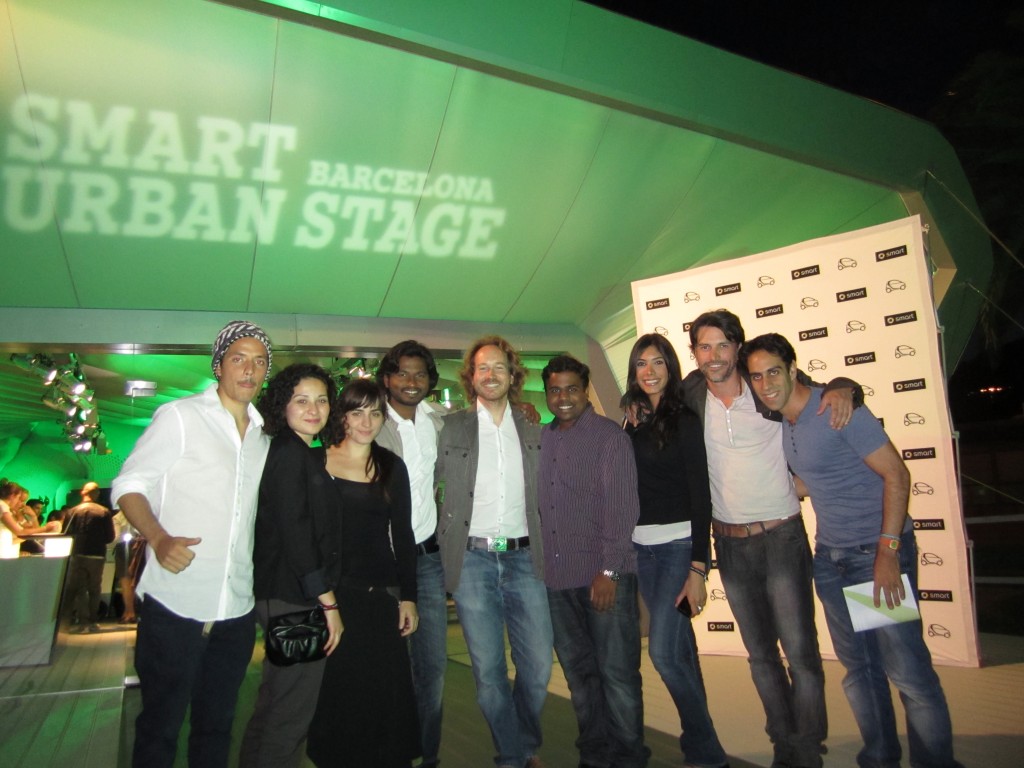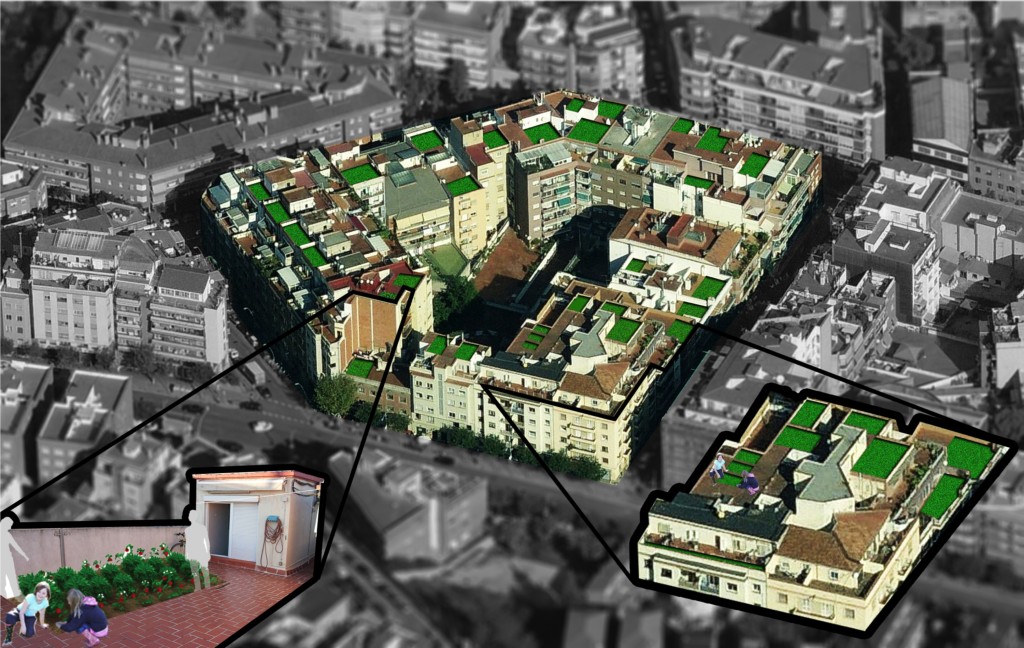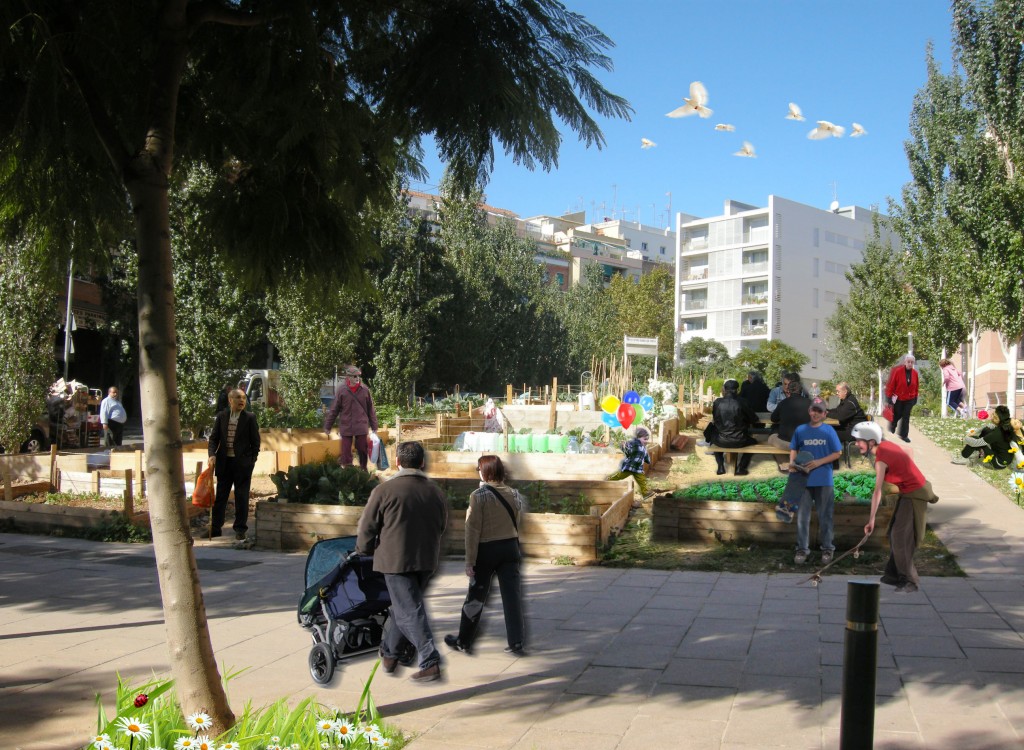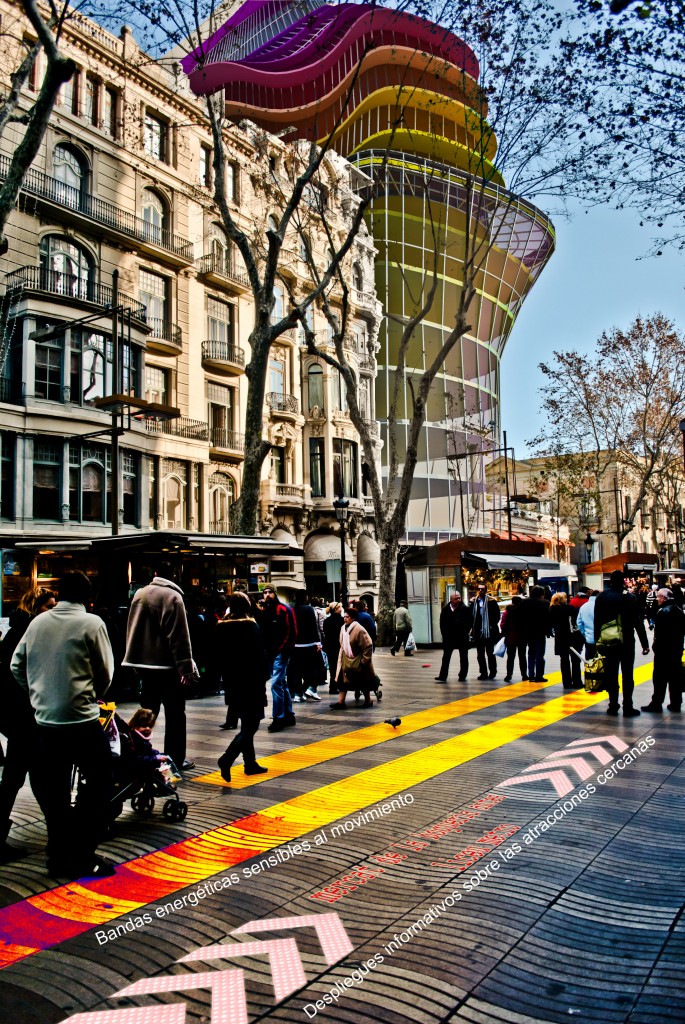(Above: IAAC MAA Students at the Smart Urban Stage exhibition opening on 19 May)
The Smart Urban Stage exhibition in Barcelona (open until 13 June) features the work of IAAC MAA Students. The projects featured are the work of two groups: “Sustainable Tourism in Barcelona” by Laura Molina Arauju (Dominican Rebulic), Harshad Sutar (India), Gamze Gunduz (Turkey), Julian Hilebrand (Germany), Antigoni Anastasopoulou (Greece) and “Urban Community Farming” by Andres Briceno (Chile), Ohad Meyuhas (Israel), Siddhesh Kale (India), Jesus Armando Zabala (Venezuela).
The goal of Smart Urban Stage is to share information and first-hand reports about the smart urban stage and the “future of the city” and to connect with creative heads and smart fans from around the world and to invite you to our smart urban stage that will visit Amsterdam, London, Milan, Barcelona, Cologne and Frankfurt/Main in 2011.
Smart Urban Stage Barcelona can be found on Paseo de Colon until 13 June.
Urban Community Farming
Student Summary:
“The Urban Community Farming project is about achieving great difference swith small changes. It is about creation of an urban scenario where we realise and utilize the neglected urban areas with potential for farming, utilizing them in generating farms and promoting an idea of urban farming as a mode of social interaction as well. We focused on how to include the elderly community and their way of life in urban farming community.”
Sustainable Tourism in Barcelona
Student Summary:
“The Sustainable Tourism in Barcelona project highlights a plan to use new technological systems to create “energetic roads” that will allow for cultural and energy exchange between tourists and the city, as they themselves generate the energy needed to power the city. The plan is to use new technological systems (electricity generated by rental bicycles and the steps of tourists treading on streets covered with special pavements) to create “energetic roads” that will allow for cultural and energy exchange between tourists and the city, as they themselves generate the energy needed to power the hotels.”
